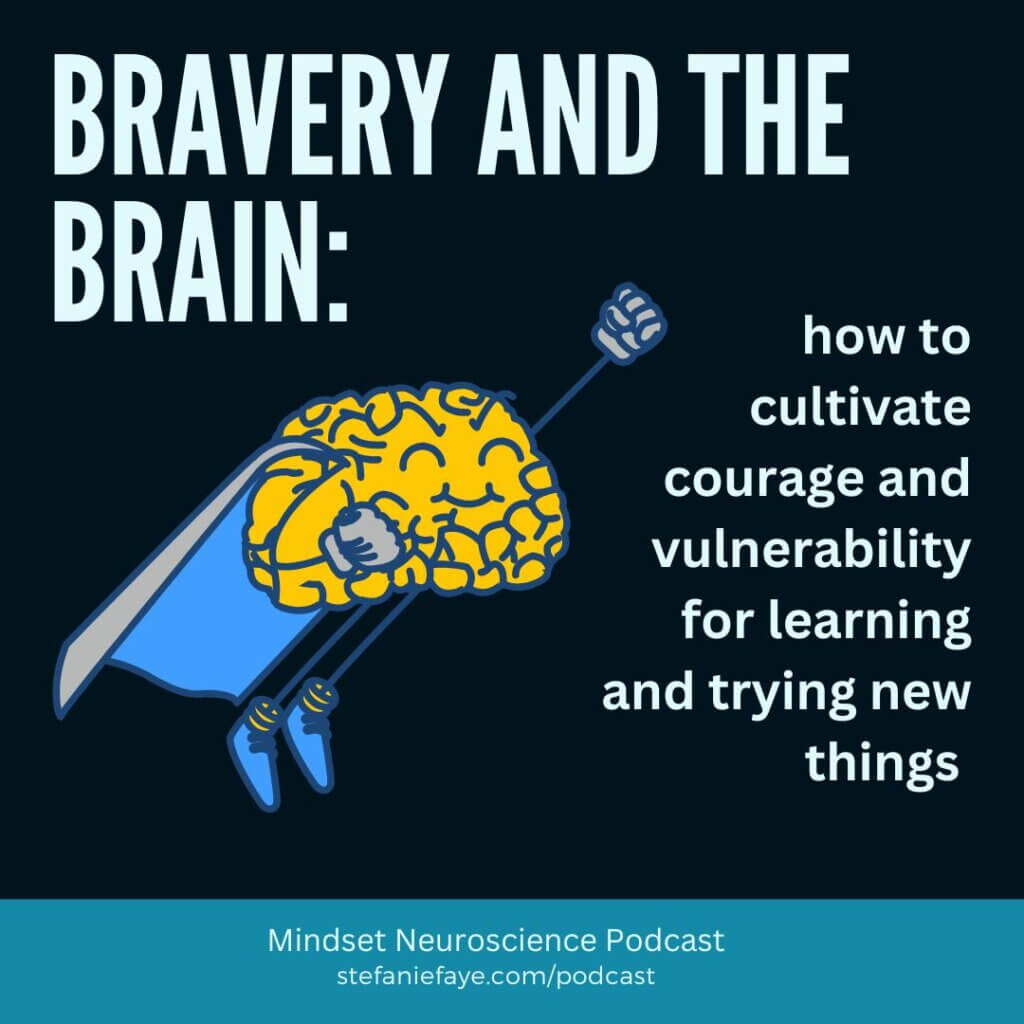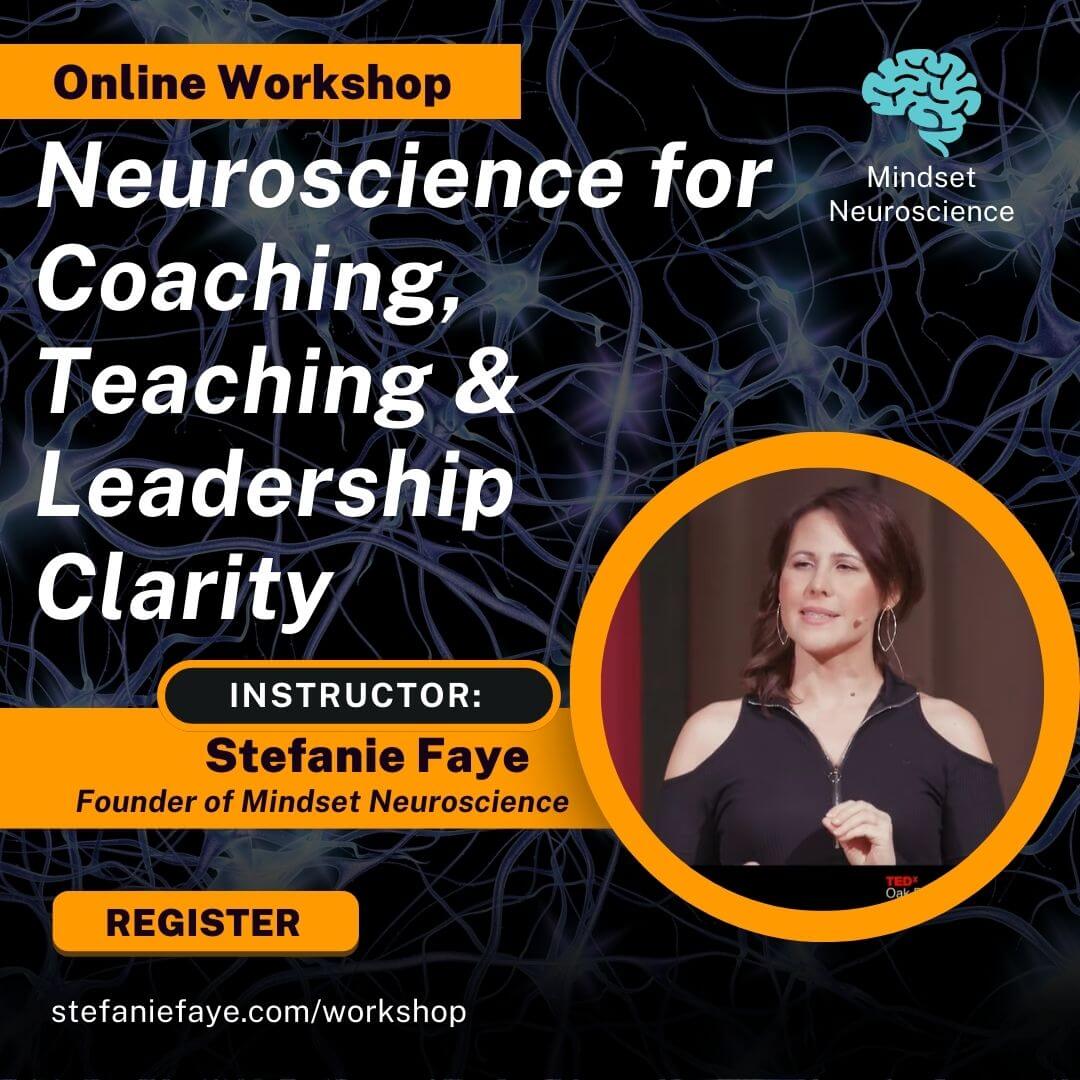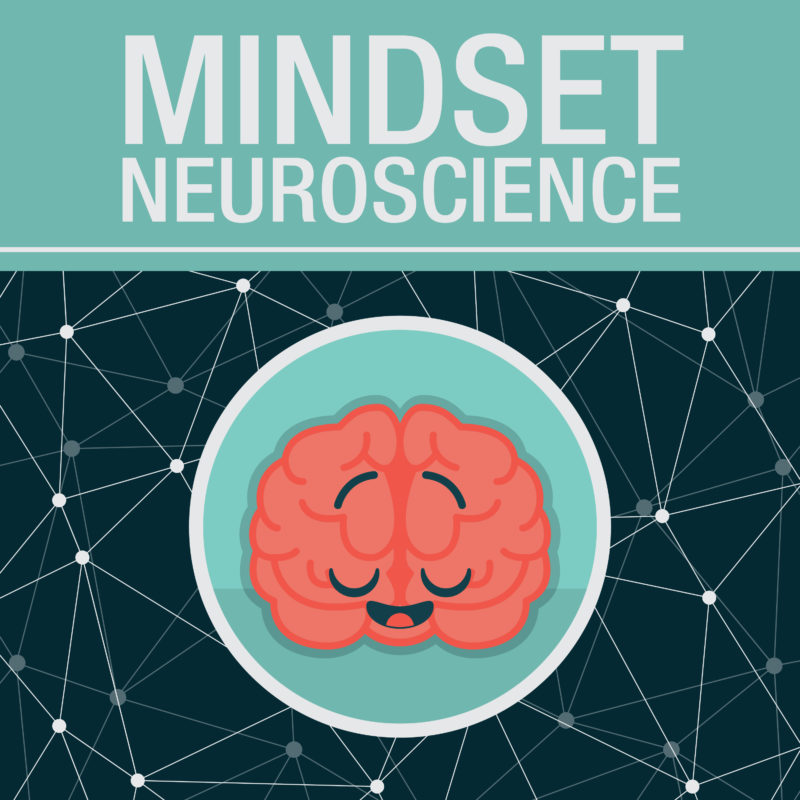Whether it's asking a question, raising our hands, speaking in public, posting or publishing, expressing something new, asking someone out, having a difficult conversation, setting a boundary, or wanting to have a new experience that challenges us… our ability to push through the unfamiliar and take action has to do with the idea of bravery, courage and vulnerability.
"In order for there to be courage, there needs to be risk.
It doesn't take courage to open up the refrigerator."
- Seth Godin
When we want something new to happen in our life, we need to do something we’ve never done before.
A lot of the time, doing something we’ve never done before makes us so nervous that we may not end up doing it all. Putting ourselves out there requires courage and our willingness to be vulnerable.
In this episode I share the science behind building new neural circuits that can help us override our fear of doing new and challenging things so that we can build up courage and bravery as a skill that we can learn - and then teach to others.

Listen to this podcast on:
Can we teach people (and ourselves) how to be brave?
What does being brave even mean? Can we learn how to have more courage? Is there a process behind it?
While there are no simple or concrete answers to this, looking at the idea of bravery through the lens of neuroscience might help us understand it better. And understanding things in new ways can help us and teach them.
There are 5 key aspects that come up as we explore bravery from a nervous system and brain-body perspective.
Learn about these in today’s Mindset Neuroscience Mini Episode:
The Fear Quadrant
This is a tool we can use to explore how our nervous system categorizes fear and what we can do to respond adaptively to stress and anxiety about situations that are new and unfamiliar, but that could bring us to higher levels of growth and resilience.
Agency
This refers to the belief in one's ability to handle and survive different experiences, whether they involve physical or psychological threats. High levels of agency make it easier to face challenges.
Neural Track Records
Repeatedly facing specific kinds of challenges can help us strengthen neural circuits that lead us to persevere through challenging situations.
Reappraisal of Physiological Sensations
This involves interpreting bodily responses (like nervousness) in ways that shift our nervous system response so that we are able to approach new situations and opportunities.
Expectation-Shifting
We can rewire our expectations to focus on personal growth and learning rather than external validation (like likes or applause). This expectation-shifting can lead to continuous increases in our sense of agency.
These concepts can help us get curious about how we can build, inspire and teach bravery by changing perceptions and responses to fear and challenging situations.
Learn about these in today’s Mindset Neuroscience Mini Episode.
I also cover this topic in this video: The Science of Courage: How to teach bravery using neuroscience
"Creativity requires courage."
- Henri Matisse
Feeling stagnant, or spread out in too many directions in your teaching, coaching or leadership?
↓ Discover brain science that will show you how to get crystal clear on where to devote your energy for translating your talents, passions and expertise into maximum impact, career-changing actions that will skyrocket your focus, wellbeing and menta l clarity. ↓


